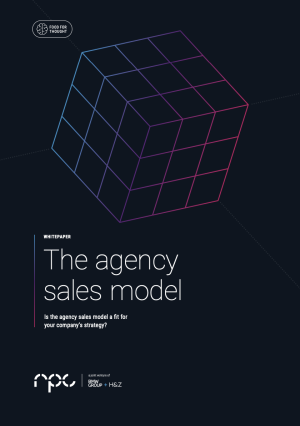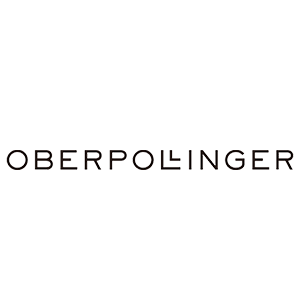A well-defined operating model concept is crucial for organizational development as it not only enhances agility by providing a clear framework for adapting to market changes and customer demands but also significantly improves overall efficiency through streamlined processes and optimized resource allocation.
The strategic alignment achieved through this operating model contributes to the long-term growth and adaptability of the organization by fostering a culture of continuous improvement and innovation. By integrating feedback, lessons learned, and new ideas into operational practices, the organization ensures dynamic responsiveness to a rapidly evolving business environment, supporting sustained growth and adaptability over time. Addressing these foundational aspects is not merely a strategic option but an indispensable requirement for organizations striving to thrive in today's fiercely competitive business landscape.
We have summarised the most common challenges and possible solutions for you:
Ambiguity in Objectives
The lack of clarity in organizational objectives poses a significant challenge in creating an operating model concept that aligns seamlessly with strategic goals. Ambiguity can lead to misinterpretations and misalignments during implementation.
Our approach: Our strategic planning process commences with the active involvement of key stakeholders from the beginning. We emphasize the clear articulation and communication of organizational objectives to establish a shared understanding. This, in turn, facilitates alignment between the operating model concept and strategic goals, fostering a cohesive and unified direction for the organization.
Complexity and Overdesign
Overdesigning the operating model can result in unnecessary complexity, making it challenging to implement, manage, and maintain. This complexity may hinder operational efficiency.
Our approach: Prioritizing simplicity without sacrificing completeness is our guiding principle. Regularly reviewing and refining the conceptual model, we eliminate elements that do not significantly contribute to operational effectiveness. Seeking input from end-users is integral to ensuring practicality and aligning our product seamlessly with their needs.
Insufficient Understanding of Current Processes
Inadequate understanding of existing processes can lead to a conceptual model that fails to address critical operational issues and does not align effectively with the organization's needs.
Our approach: Through thorough analysis of current processes, involving process owners and end-users., we use data-driven insights to inform the conceptualization. In doing so, we ensure that the new model builds upon the strengths and addresses weaknesses of the existing processes.
Inadequate Stakeholder Involvement
Limited engagement with key stakeholders may result in an operating model concept that does not fully meet the diverse needs of different departments and functions within the organization.
Our approach: We actively involve representatives from various departments and functions in the concept creation process. By regularly gathering feedback and conducting workshops, we ensure that the operating model reflects the input and requirements of all relevant stakeholders.
Short-Term Focus
Prioritizing immediate needs over long-term sustainability can lead to an operating model that lacks adaptability and scalability, hindering future business requirements.
Our approach: We balance short-term objectives with a strategic vision. By including scalability considerations in the concept creation process, we anticipate future needs and ensure that the operating model can evolve with your organization.
Technology Integration Challenges
Integrating technology seamlessly into the conceptual framework poses a common challenge, requiring careful consideration to avoid disruptions and ensure efficient implementation.
Our approach: We collaborate with IT experts and stakeholders to assess the organization's technological capabilities and limitations while prioritizing interoperability and scalability when selecting and implementing technology solutions aligned with the operating model concept.
Cultural Misalignment
Failure to integrate cultural considerations into the concept creation process may result in misalignment between the proposed operating model and the way employees work.
Our approach: By conducting cultural assessments and involving employees in the concept creation process, we align the operating model with the existing organizational culture or, if needed, promote a cultural shift that supports the envisioned operational framework.
Limited Flexibility
A conceptual model lacking flexibility and adaptability may struggle to accommodate changes in the business environment and unexpected challenges.
Our approach: We design the operating model with built-in flexibility: establishing feedback loops, regularly reviewing the conceptual model, and implementing a change management strategy to ensure that the operating model remains responsive to evolving business conditions.
How do I reach these goals?
Navigating this multitude of challenges requires a holistic approach. At rpc, we specialize in providing end-to-end solutions that address the intricacies of operating model design and guide organizations through transformative phases of organizational development. Whether it's aligning business strategy with a target operating model, overcoming resistance to change, or optimizing technology integration, our comprehensive consulting services offer tailored solutions. From strategic assessments to implementation and performance optimization, we are committed to empowering businesses in their journey towards sustained growth, adaptability, and excellence
Explore our offerings
Operating Model & Organizational Excellence
Optimize your business with cutting-edge Operating Model and Organizational Excellence strategies. Unlock efficiency, innovation, and peak performance. Ready to elevate your organization?
Automotive Special:
Used Car Business Models
Uncover new avenues for growth, efficiency, and customer satisfaction. Ready to redefine the future of your used car business?
Agency Model Sales Concepts
Discover the strategic alignment of the agency model for your company, understanding its implications and effects for both short and long-term success.
Agile Operating Model Concepts
Discover the power of Agile Operating Model concepts tailored to your industry. Fuel innovation, adaptability, and efficiency. Ready to embrace the future of business operations?
Spotlight on automotive industry
In the ever-evolving landscape of the automotive industry, organizational development plays a pivotal role in shaping success. Crafting and implementing diverse target operating models and operating model concepts are paramount for companies striving to navigate the complexities of this dynamic sector.
As the automotive industry is deeply embedded in rpc's DNA, our main expertise is focused on two key areas - the optimization of operating models in the used car business and the strategic alignment and implementation of the agency sales model.
Agency Sales Model – a strategic fit for you?
The automotive industry is witnessing a paradigm shift towards the agency sales model, accelerated by trends that emerged during the Covid-19 period. Car manufacturers are moving away from traditional wholesale models to adopt a direct sales model. At rpc, we understand the changing landscape and offer comprehensive support in navigating this shift. From assessing the strategic fit of the agency model for your company to designing governance, processes, and IT architecture for an omnichannel sales journey, we guide you through every step. Our expertise extends to preparing and executing the rollout of the agency model, defining retail network strategy, and optimizing retail performance for a successful transition.

Too complicated?
We've summarized it for you!
Our whitepaper explains the different agency sales model types, discusses the pros and cons and helps companies to adapt this sales model to their specific needs.
Used Car Business 2.0 – Are you ready for the future?
The automotive retail business model is facing significant pressures, such as the introduction of the agency model, market consolidation, digital competition, evolving customer expectations, and economic uncertainty. Amidst these challenges lie opportunities, and at rpc, we specialize in analyzing, optimizing, and digitalizing the operational capabilities of your used car business. From purchasing to vehicle preparation, marketing, and sales, we focus on implementing data-driven processes and developing the used car organizational units, ensuring a seamless online/offline buying experience tailored to individual customer needs.

Ready to transform your business?
rpc has identified the top 10 influencing factors to successfully professionalize, digitize and scale your used car business.
Why rpc?
We overcome the hurdles of true customer centricity
of all customers value seamless customer experiences and are willing to pay more for them.
*Source: Forbes meta research, 2020
However, 70% of all transformation processes fail in their final stages.
*Source: McKinsey, 2019
With rpc you get access to an internationally
experienced network of experts...
> 430
EN international experts
> 13.500
EN process steps recorded and reported
> 800
EN tools and best practices, to guarantee sustainable change


































